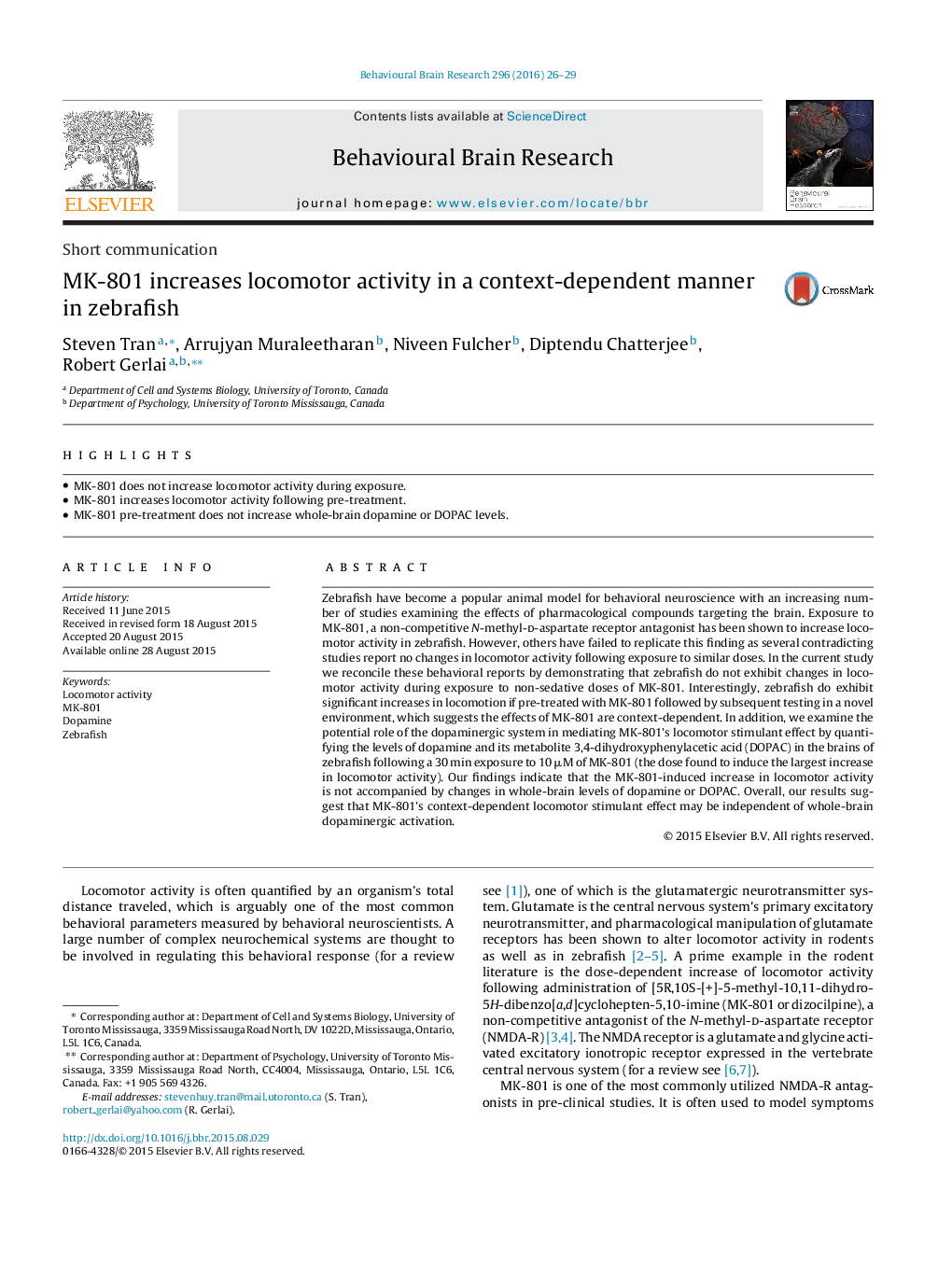| Article ID | Journal | Published Year | Pages | File Type |
|---|---|---|---|---|
| 4312357 | Behavioural Brain Research | 2016 | 4 Pages |
•MK-801 does not increase locomotor activity during exposure.•MK-801 increases locomotor activity following pre-treatment.•MK-801 pre-treatment does not increase whole-brain dopamine or DOPAC levels.
Zebrafish have become a popular animal model for behavioral neuroscience with an increasing number of studies examining the effects of pharmacological compounds targeting the brain. Exposure to MK-801, a non-competitive N-methyl-d-aspartate receptor antagonist has been shown to increase locomotor activity in zebrafish. However, others have failed to replicate this finding as several contradicting studies report no changes in locomotor activity following exposure to similar doses. In the current study we reconcile these behavioral reports by demonstrating that zebrafish do not exhibit changes in locomotor activity during exposure to non-sedative doses of MK-801. Interestingly, zebrafish do exhibit significant increases in locomotion if pre-treated with MK-801 followed by subsequent testing in a novel environment, which suggests the effects of MK-801 are context-dependent. In addition, we examine the potential role of the dopaminergic system in mediating MK-801’s locomotor stimulant effect by quantifying the levels of dopamine and its metabolite 3,4-dihydroxyphenylacetic acid (DOPAC) in the brains of zebrafish following a 30 min exposure to 10 μM of MK-801 (the dose found to induce the largest increase in locomotor activity). Our findings indicate that the MK-801-induced increase in locomotor activity is not accompanied by changes in whole-brain levels of dopamine or DOPAC. Overall, our results suggest that MK-801's context-dependent locomotor stimulant effect may be independent of whole-brain dopaminergic activation.
